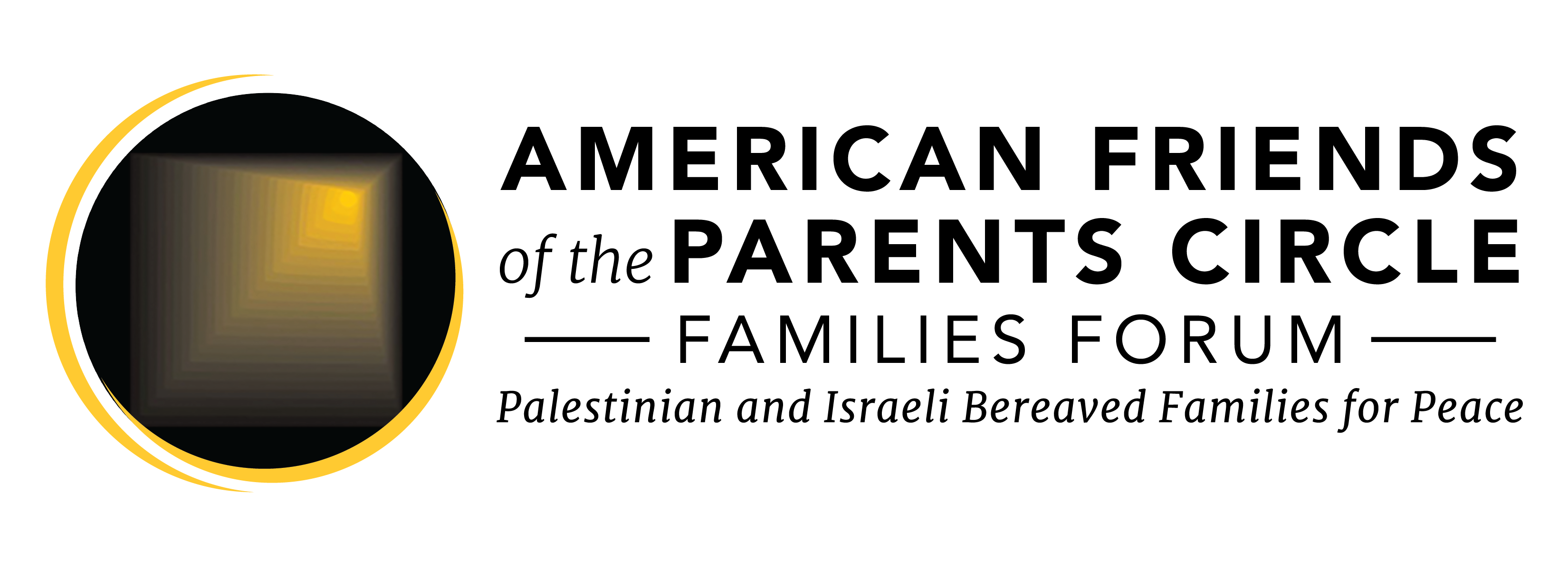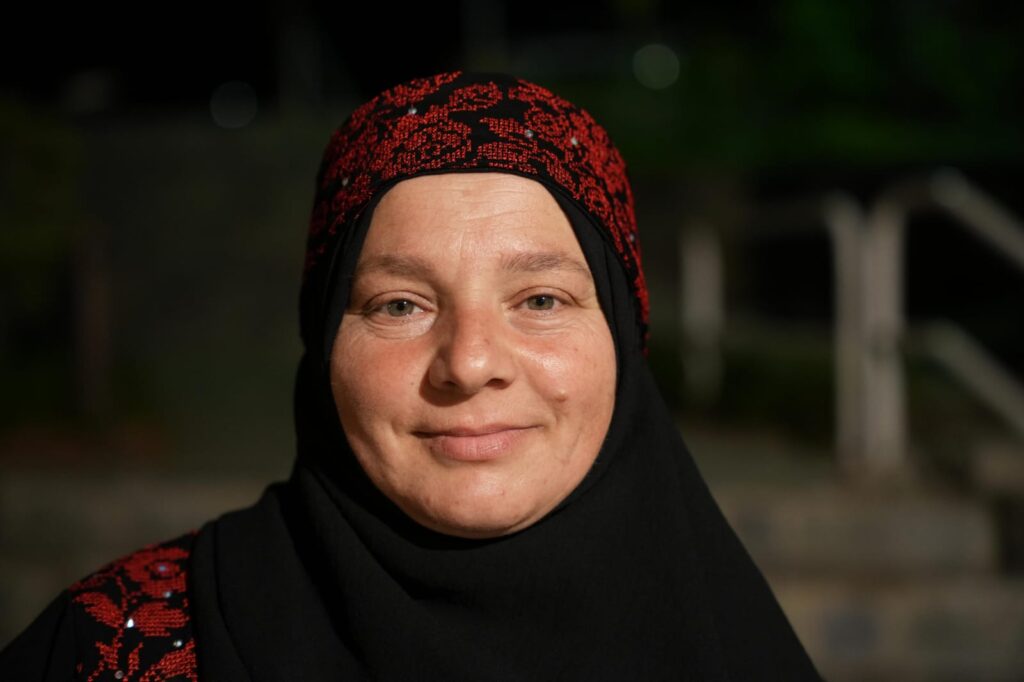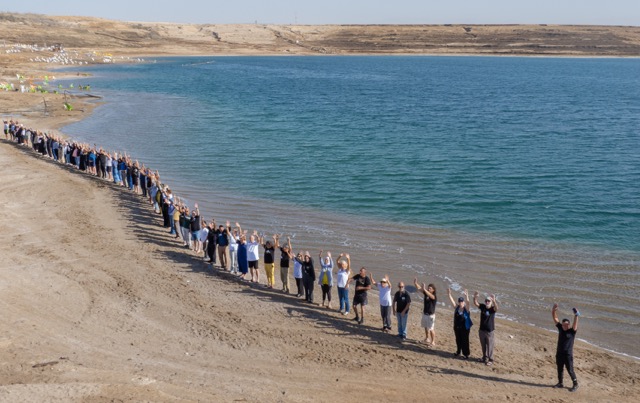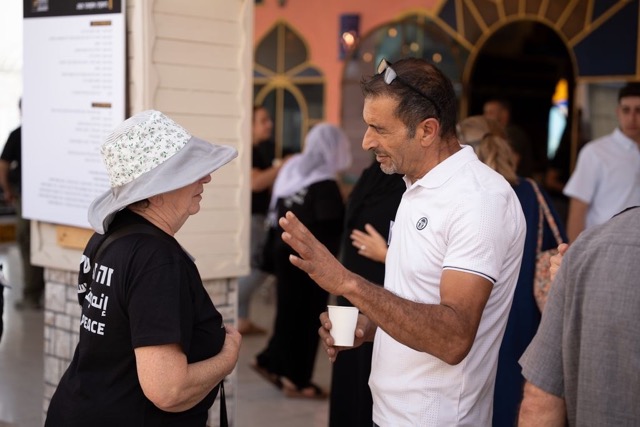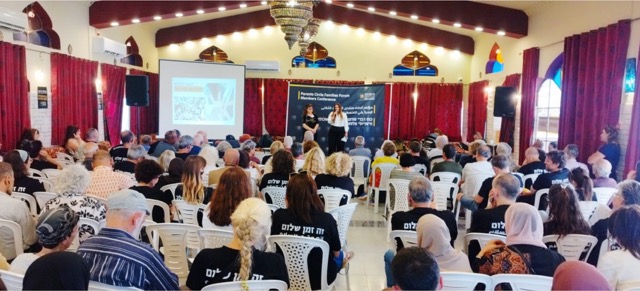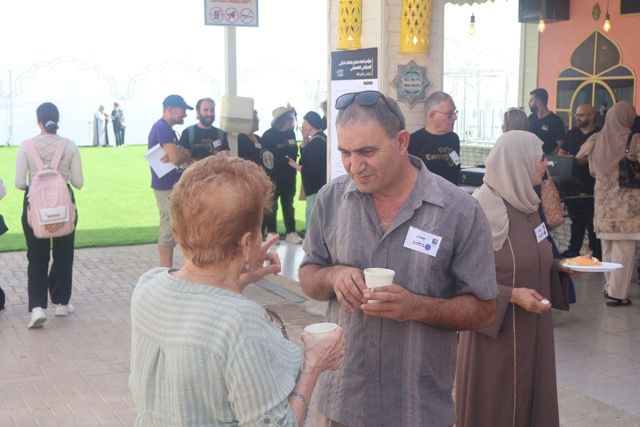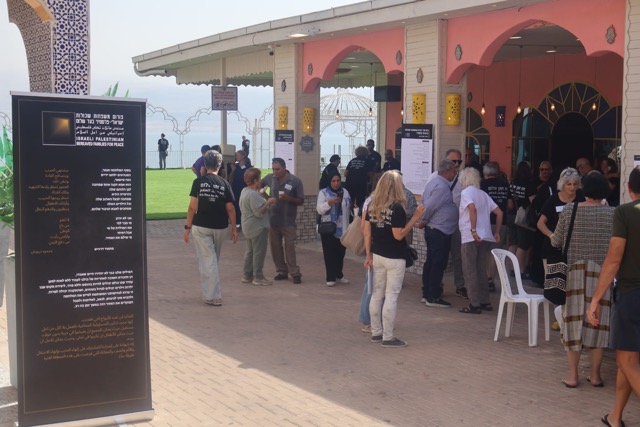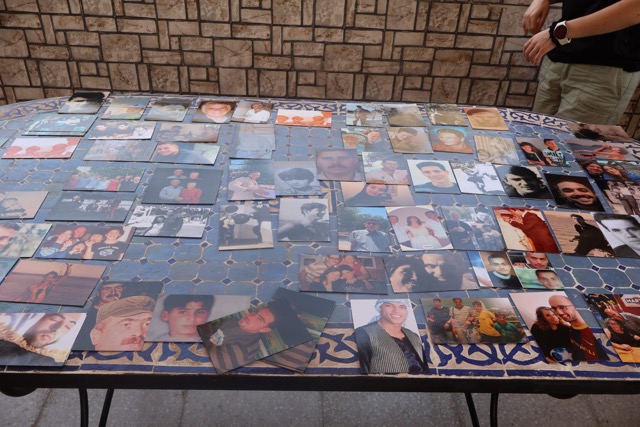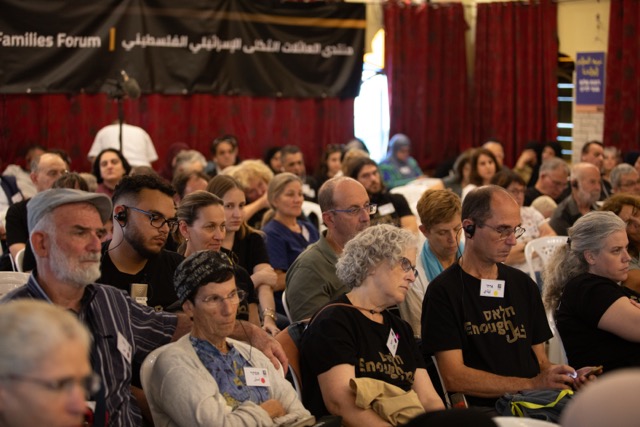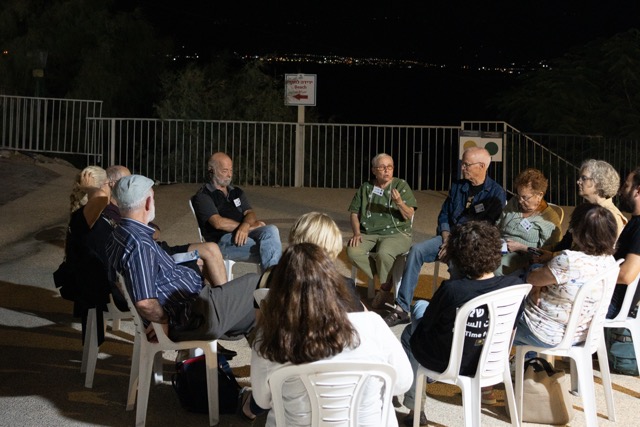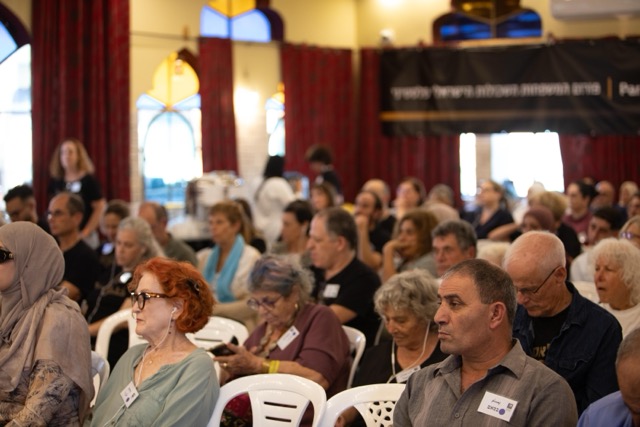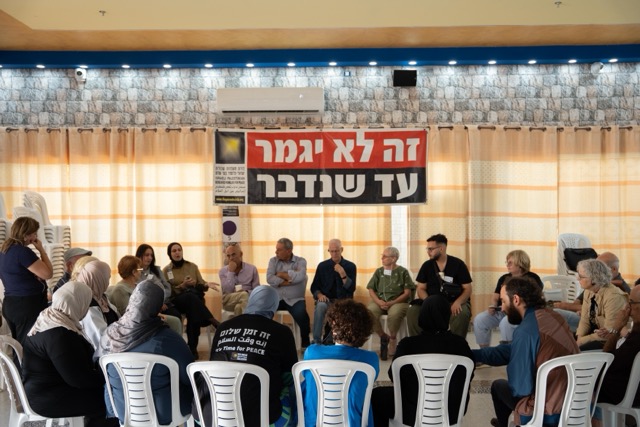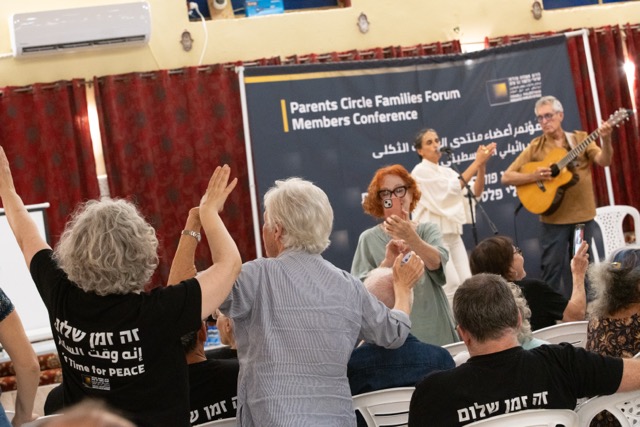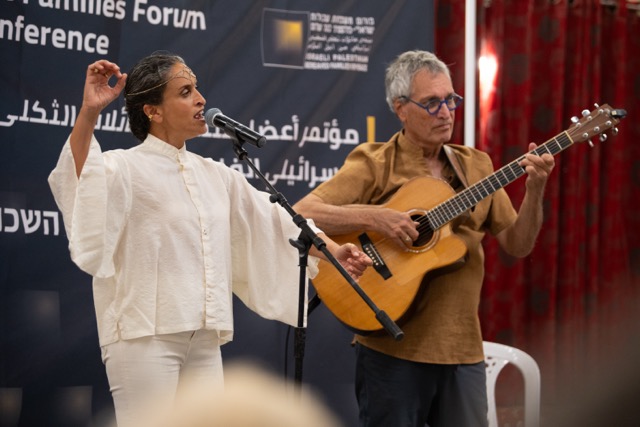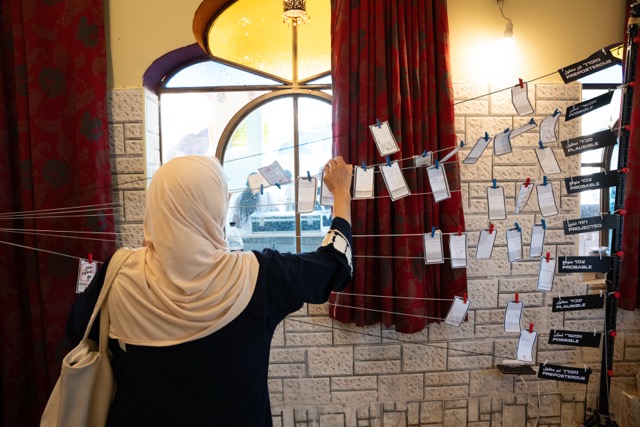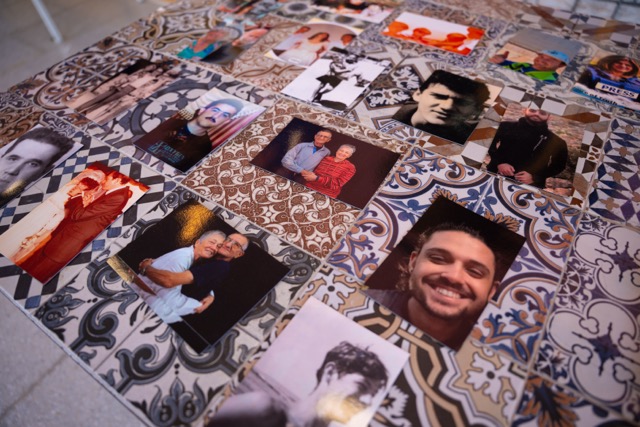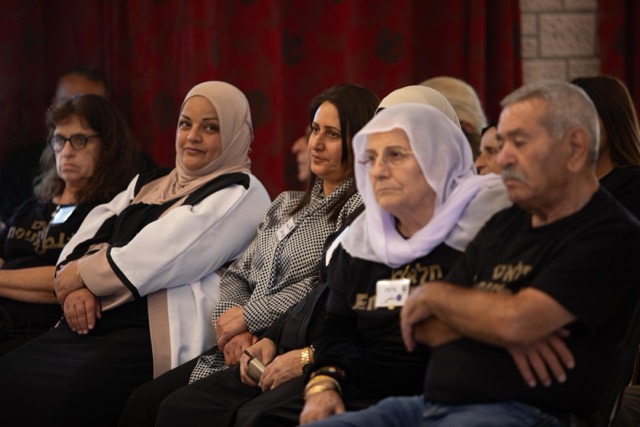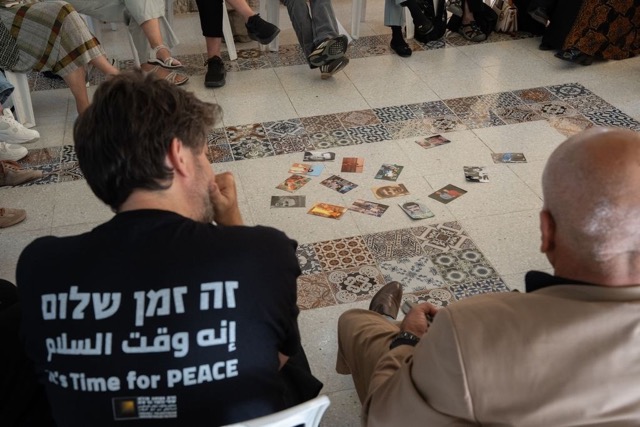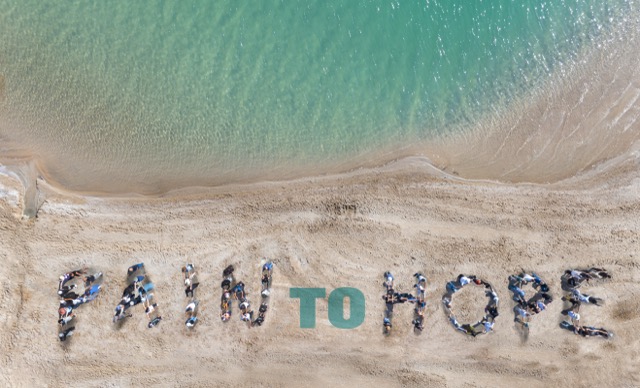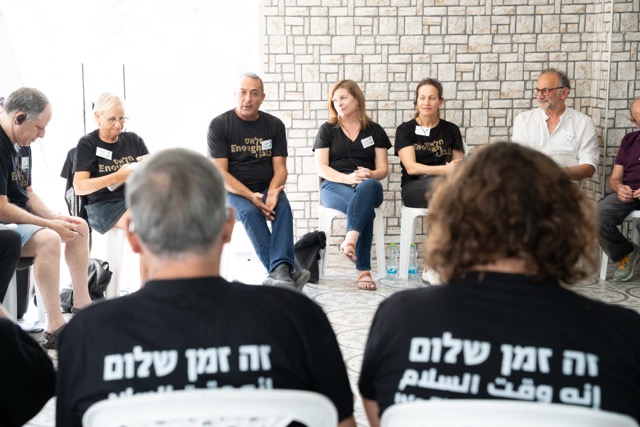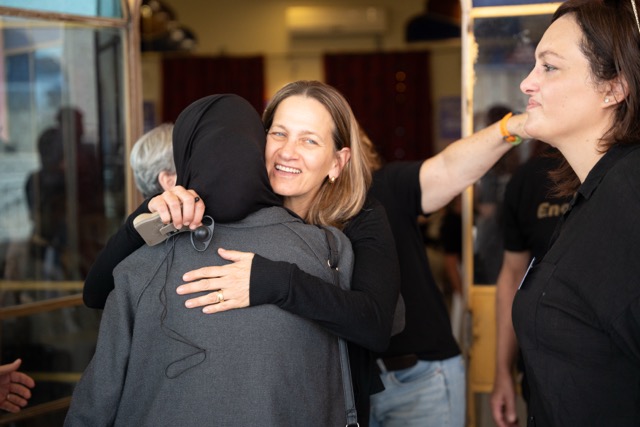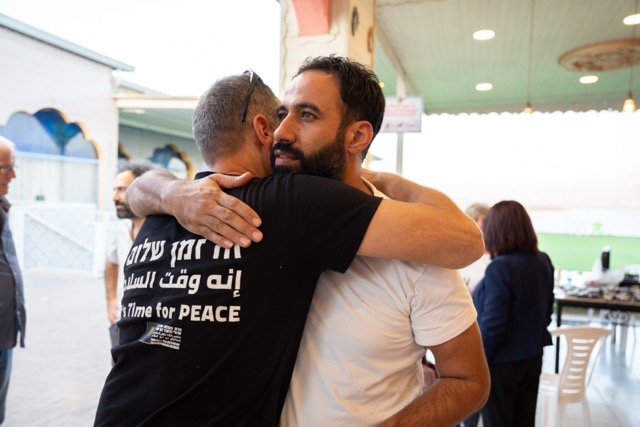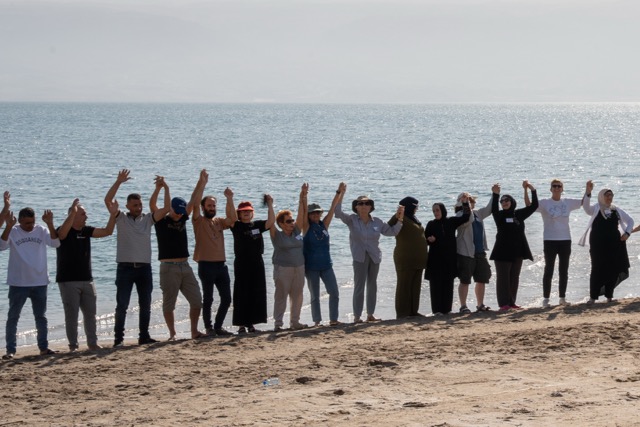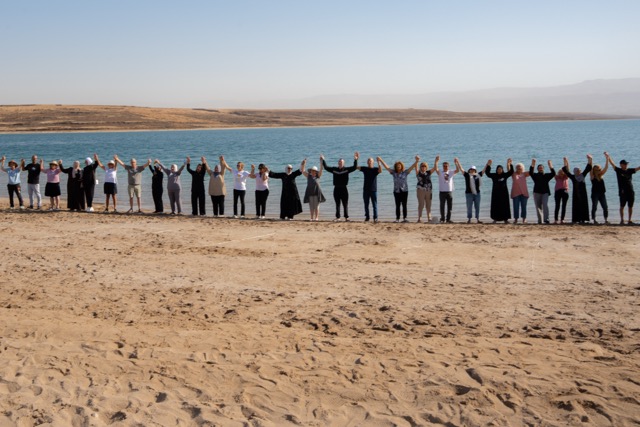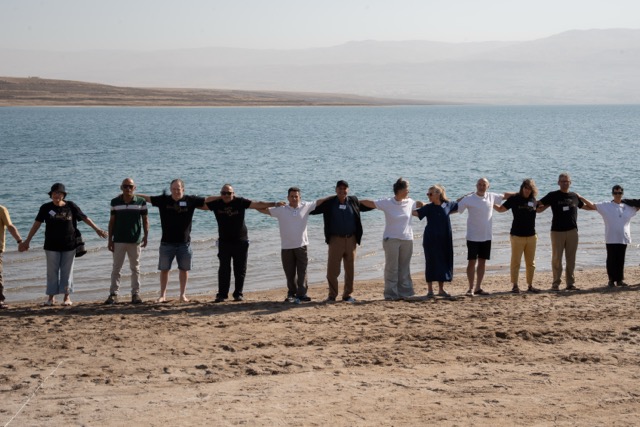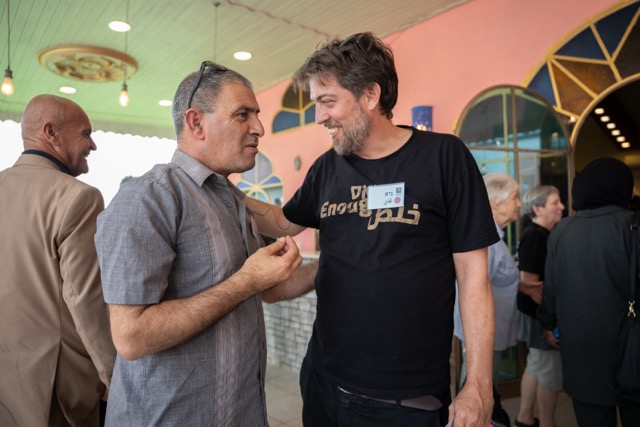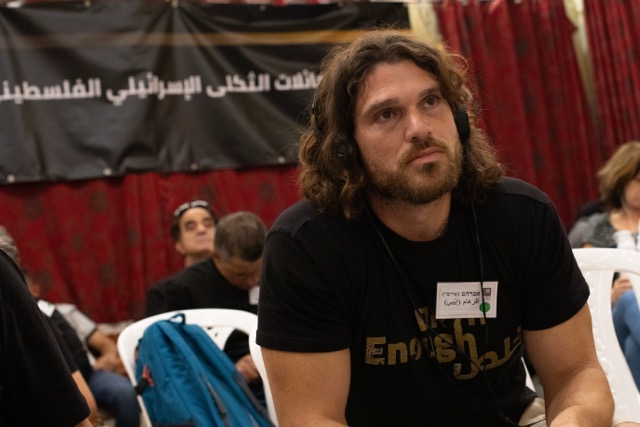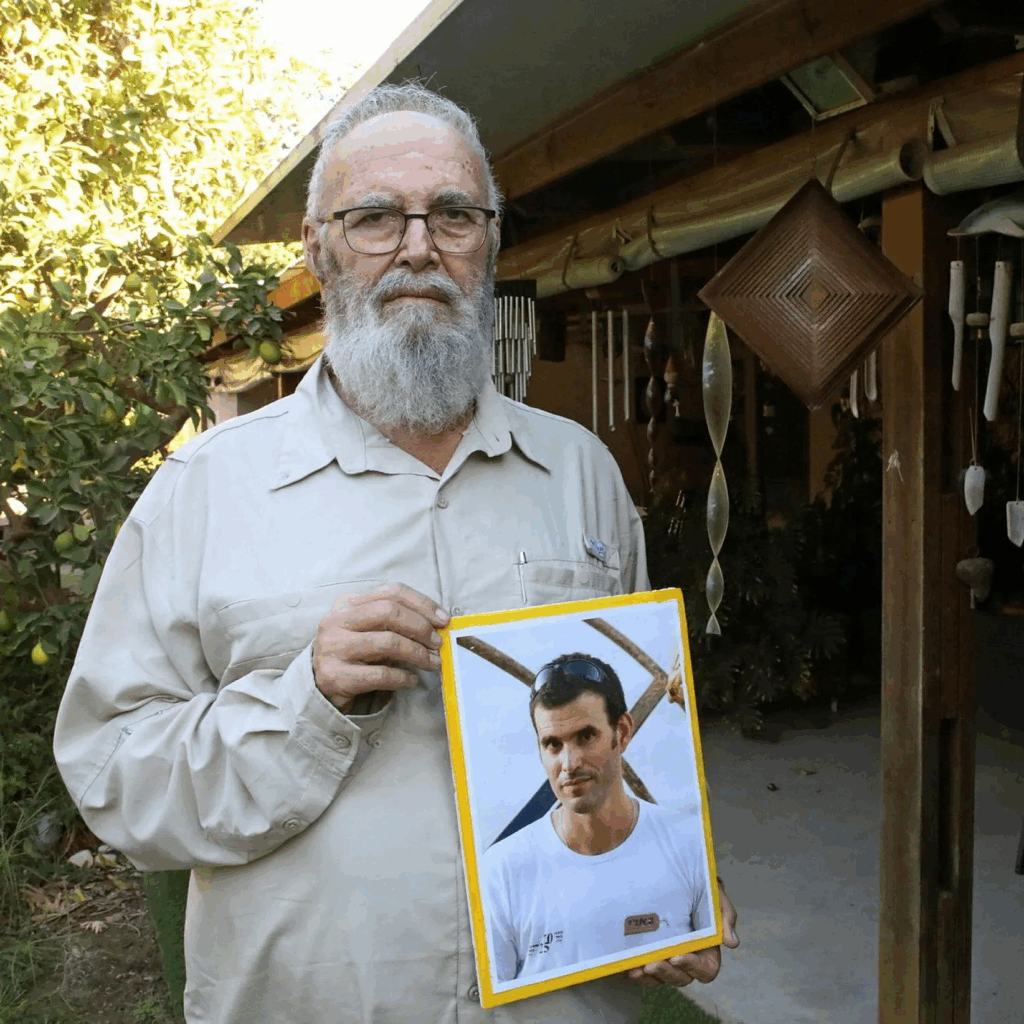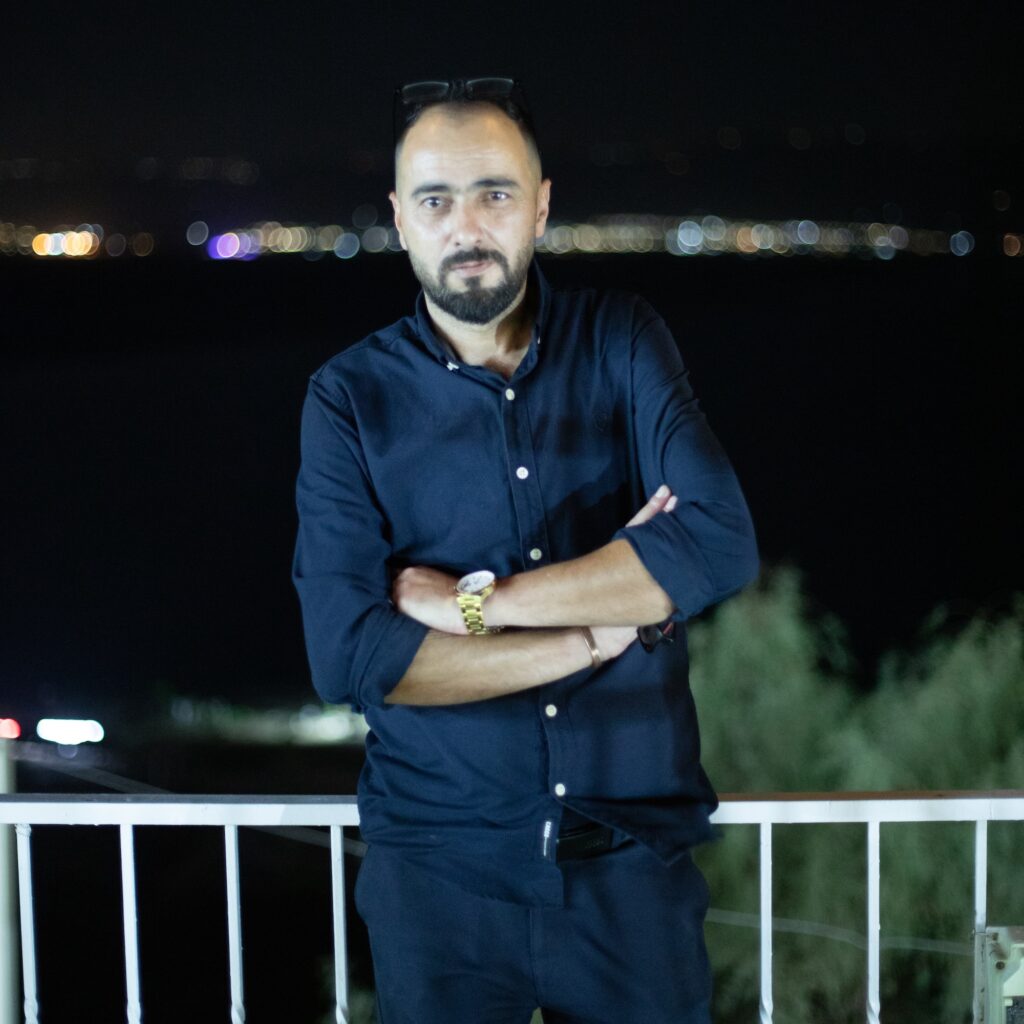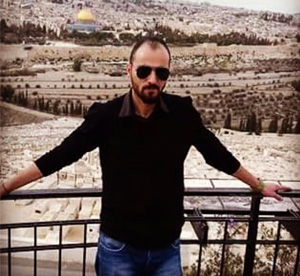 My name is Mohammad Albaw. My brother, Firas, was killed in 2002 by an Israeli soldier at a checkpoint. Today, despite the pain of losing my dear brother and friend, I am a member of the Parents Circle – Families Forum.
My name is Mohammad Albaw. My brother, Firas, was killed in 2002 by an Israeli soldier at a checkpoint. Today, despite the pain of losing my dear brother and friend, I am a member of the Parents Circle – Families Forum.
Last week we held our first Dialogue Meeting by Zoom. I facilitated the meeting alongside Yigal Elhanan, a bereaved Israeli brother.
In the beginning, it was very strange. It was the first time I led a Dialogue Meeting in this way. Yigal and I started as usual, explaining about the Parents Circle and sharing our personal stories. I lost my brother and Yigal lost his sister, Smadar, in a suicide bombing in Jerusalem in 1997.
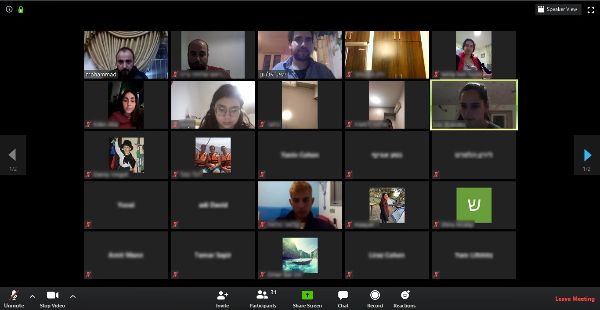
There were 45 Israeli students from a pre-military preparatory program (Mechina) in the Zoom room. After we shared our stories, the students first reacted with gratitude that we held the Dialogue Meeting. Many of them said that this was the first time they heard the “other side”. This was the first time they heard about the Palestinian reality and they thanked me for opening up to them.
 And then, the conversation turned. For many of them, the Palestinians are terrorists who have carried out attacks on innocent Israelis and that they, as Israeli soldiers are simply securing their country. I was not surprised. This question usually arises. I answered in the way I normally do – saying that once there will be a peace agreement, Israeli soldiers will not need to stand at checkpoints 200 meters from my house or any Palestinian house. When there will be a peace agreement, Israeli soldiers can guard the borders of their country and as Palestinians, we will be entitled to protect our borders as well.
And then, the conversation turned. For many of them, the Palestinians are terrorists who have carried out attacks on innocent Israelis and that they, as Israeli soldiers are simply securing their country. I was not surprised. This question usually arises. I answered in the way I normally do – saying that once there will be a peace agreement, Israeli soldiers will not need to stand at checkpoints 200 meters from my house or any Palestinian house. When there will be a peace agreement, Israeli soldiers can guard the borders of their country and as Palestinians, we will be entitled to protect our borders as well.
It was important for me to talk about education, as many Israelis often think that Palestinians teach their children to hate. A Palestinian youth that wakes up every morning and goes to school, crossing checkpoints, experiencing soldiers, seeing army jeeps, day in and out, — that reality creates hatred and fear. Palestinian youth don’t have the opportunity to meet Israelis like I have the opportunity to know you.
Suddenly, I remembered that I wasn’t with these young people physically in the same room. The barrier of the coronavirus – yet another barrier to bringing Israelis and Palestinians together – did not prevent us from getting our messages across.
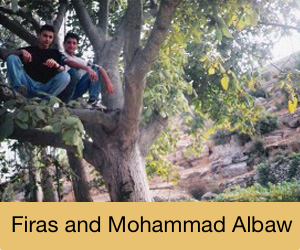
At the end of the meeting I told them that I know they are required to serve in the army. I asked them that when they stand at the checkpoints to please remember what I told them in the Dialogue Meeting and look at the Palestinians as human beings and treat them with respect and dignity.
The young people thanked us for sharing our stories and talking with them. This was the first time they heard it in this way. They recognized that we are headed in a different direction – towards peace and reconciliation and asked how they could help.
You can learn more about my story of loss and reconciliation here.
